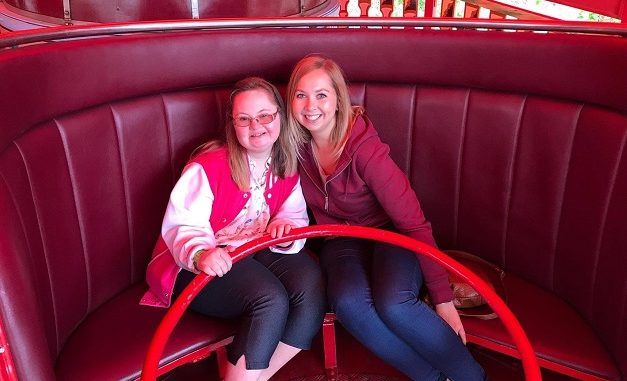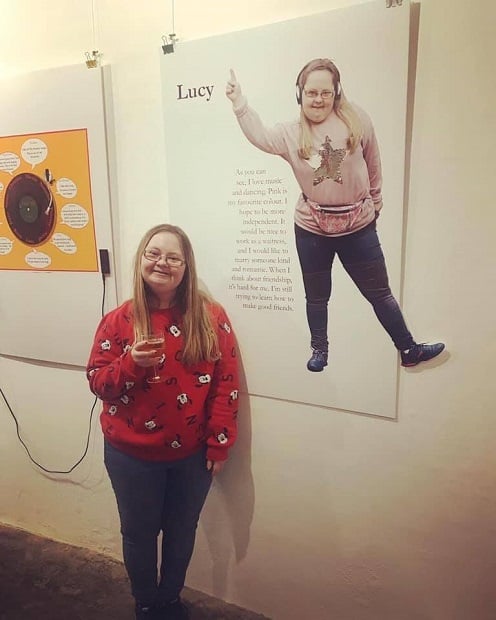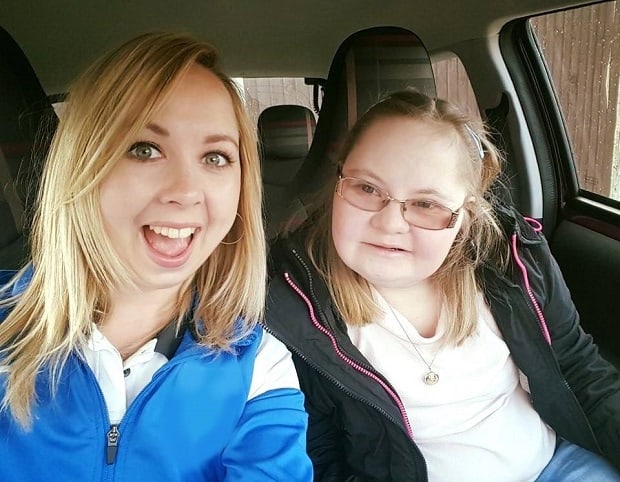
Carers’ Week (June 8-14) is an annual campaign to raise awareness of caring, highlight the challenges unpaid carers face and recognise the contribution they make to families and communities across the UK.
It also helps people who don’t think of themselves as having caring responsibilities to identify as carers and access much needed support. There are 6.5 million people across the UK who are carers. They are looking after a family member or friend who has a disability, mental or physical illness or who needs extra help as they grow older.
NHS worker and East Kent Mencap chairperson Amy Rutland, 30, from Margate, has written about her experience of being a carer for her younger sister Lucy, during the Coronavirus pandemic:
A lot of my time spent with my sister, Lucy, doesn’t usually feel like I’m being a carer.
Lucy is 27 and has Down’s Syndrome. During normal times, she and I go out everywhere together; whether it’s to the shops or off to watch a local football match, even out for dinner with our friends or a trip to the casino for cocktails and a flutter.
However, since the Government lockdown, coupled with Lucy having to stay home for 12 weeks (and likely longer) to shield and protect herself from catching Coronavirus, the responsibility of care has been more apparent.

Since Coronavirus became more of the new normal, Lucy has lost everything that gave her independence, routine and stability. She has been unable to attend her daily resource centre at East Kent Mencap since mid-March. This is where she spends time with her friends, doing activities, learning new skills and generally living her best, independent life.
Losing this daily routine has impacted Lucy, especially as the only alternative she now has is staying at home all day. It is even more difficult as she doesn’t understand much about what is going on, except that there is something happening that is making lots of people really ill and that she can’t get it. Her behaviour is a struggle sometimes, when all she wants to do is go out, along with her mental health, like anyone else she has good days and bad days. She lets me know every morning if she has got out of the right side of the bed today and how she is feeling.

As a family, we have worked hard to create a new routine for Lucy. We have spent time, while staying at home, to find new activities to do together. Lucy has learnt how to bake bread from scratch, she has started growing vegetables in her gardening patch at the end of the garden and we have completed more puzzles than I care to count… she has even learnt how to pick up a hoover and give the front room a blitz.
Lucy also still gets her time with the TV, watching her favourite old re-runs of The Bill and Super Nanny (no, I don’t know why either – but she loves it!). We are also regularly video calling with her friends and link workers from East Kent Mencap; this always puts a huge smile on her face for the day.

Being a carer has become much more difficult during Coronavirus. Creating a new routine for Lucy, balanced with understanding and appreciating everything she is missing at the moment and trying, where possible, to make up for that to help keep her happy and busy has helped. But, the future is still unknown as to when things will return to normal and what that may look like, which continues to challenge our family unit.

